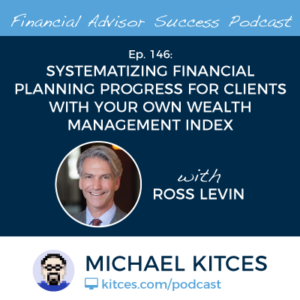Enjoy the current installment of "weekend reading for financial planners" – this week's edition kicks off by diving into the big industry buzz of the past two weeks, where Ken Fisher, multi-billionaire owner of his eponymous $110B+ RIA, made sexually inappropriate comments at the recent Tiburon CEO Summit, spawning the financial advisory industry's version of a #MeToo moment that has led to not only Fisher being banned from several conferences (and the withdrawal of more than $1B of his institutional investors), but a rising focus on sexual harassment policies at conferences and the stories of women across the industry sharing their own experiences of sexual harassment, sexual assault, or outright rape at industry conferences.
From there, we have several more articles on industry news this week, including the FPA's decision to break with precedent and select its first non-CFP vendor representative as the next President-Elect for its National Board (from a company that also happens to be the FPA's largest corporate sponsor, and that directly opposes FPA's fiduciary advocacy lobbying efforts!), the CFP Board's announcement that it is gearing up a new Enforcement Plan for the coming year with its new Standards set to take effect (and in response to the recent WSJ article questioning its current enforcement standards).
There are also a few regulatory articles, from a new PIABA study finding that expungement requests for brokers with problematic disciplinary records has skyrocketed as creative lawyers appear to have figured out how to game the system, a critique from the Inspector General that the SEC is failing in its enforcement efforts (with an average of more than 2 years from when the SEC begins an investigation until it actually issues an enforcement action against a problematic RIA), and an alert from FINRA that it may soon crack down on broker-dealers' lax oversight of their brokers using text messages and social media messaging apps (without properly archiving and overseeing the communications, or failing to monitor their brokers from not using those channels if the broker-dealer states they're not permitted).
We also have a few investment-related articles, including a look at why the SEC's recent ETF rule will likely mean the death of the iNAV for ETFs (and why it may not necessarily be much of a loss in practice), how the industry has focused on declining ETF expense ratios but the average expense ratio that investors pay for mutual funds is also crashing (if only because investors have now put nearly 5X the dollars more into no-load mutual funds than loaded mutual funds as the industry increasingly shifts towards fee-based accounts), and how even as expenses on ETFs continue to lower there may be a floor appearing as recent ETFs that have launched with zero or even "negative" expense ratios are actually not attracting significant new dollars from investors.
We wrap up with three interesting articles, all around the theme of the challenges of burnout: the first explores the concept of "boreout", where an employee isn't necessarily burned out from too much work, but "bored out" from having too little work to do, to the point that it can actually result in deleterious health effects; the second examines the drivers of work motivation, and how compensation only carries someone 'so far' before other more intrinsic motivators become the primary drivers; and the last looks at a recent industry study finding that financial advisors themselves are experiencing far higher stress levels than the average person, for which the solution isn't necessarily about 'work-life balance' and spending more time with family, but being more proactive in taking control of the advisor's time and scheduling to have a more productive work day in the first place.
Enjoy the 'light' reading!







 Welcome back to the 146th episode of Financial Advisor Success Podcast!
Welcome back to the 146th episode of Financial Advisor Success Podcast!

